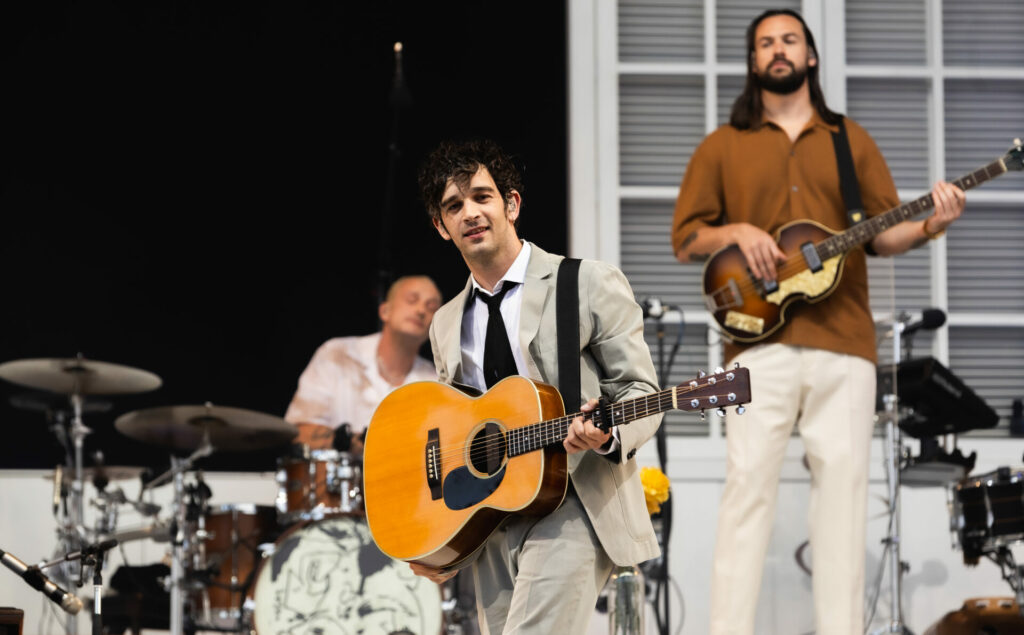Malaysia decides against banning all international performers after The 1975 row
“Just because of one incident, how can we cancel the others?” deputy communications and digital minister Teo Nie Ching said in parliament.

Malaysia has decided against banning all international music performers from the country after a high-profile incident concerning The 1975.
On July 21 this year, the group’s set at Malaysia’s Good Life Festival was cut short after he criticised the country’s anti-LGBTQ+ laws and kissed bandmate Ross MacDonald.
The group’s set was pulled 30 minutes later and authorities cancelled the remaining two days of the festival. The 1975 were banned from performing in the country as a result, while 18 police reports have been filed. The remainder of the band’s Asia tour was also cancelled.
After the incident, a total ban on international performers was touted in Malaysia, but deputy communications and digital minister Teo Nie Ching has now confirmed to Parliament that this will not go through.
“The 1975 flouted several guidelines and we are in the midst of strengthening the guidelines to avoid reoccurrence,” she said. “Just because of one incident, how can we cancel the others? Out of 296 artists only one happened. How is this fair?”
However, it will still be mandatory for a “kill switch” to be in use at all gigs, meaning that any performances who break guidelines are able to be immediately cut off.
In addition to their ban from Malaysia, The 1975 also face class action lawsuits from a selection of musicians and local traders who say that the cancellation of the Kuala Lumpur event – due to Healy’s actions – caused a substantial loss of earnings. Future Sound Asia (FSA), the organiser of Kuala Lumpur’s Good Vibes Festival (GVF), also demanded the group pay RM12.3million (£2,099, 154) in damages.
On the band’s recent US tour, Healy delivered a speech in which he directly addressed the incident and the ban.
Explaining that he was “pissed off, to be frank”, Healy said: “The 1975 did not waltz [into] Malaysia unannounced, they were invited to headline a festival by a government who had full knowledge of the band with its well-publicised political views and its routine stage show. Malaysian festival organisers’ familiarity with the band was the basis of our invitation.
“Me kissing Ross was not a stunt simply meant to provoke the government, it was an ongoing part of The 1975 which has been performed many times prior. Similarly, we did not change our set that night to play, you know, pro-freedom of speech or pro-gay songs.
“To eliminate any routine part of the show in an effort to appease the Malaysian authorities’ bigoted views of LGBTQ people would be a passive endorsement of those politics. As liberals are so fond of saying, ‘Silence causes violence, use your platform’, so we did that.”
